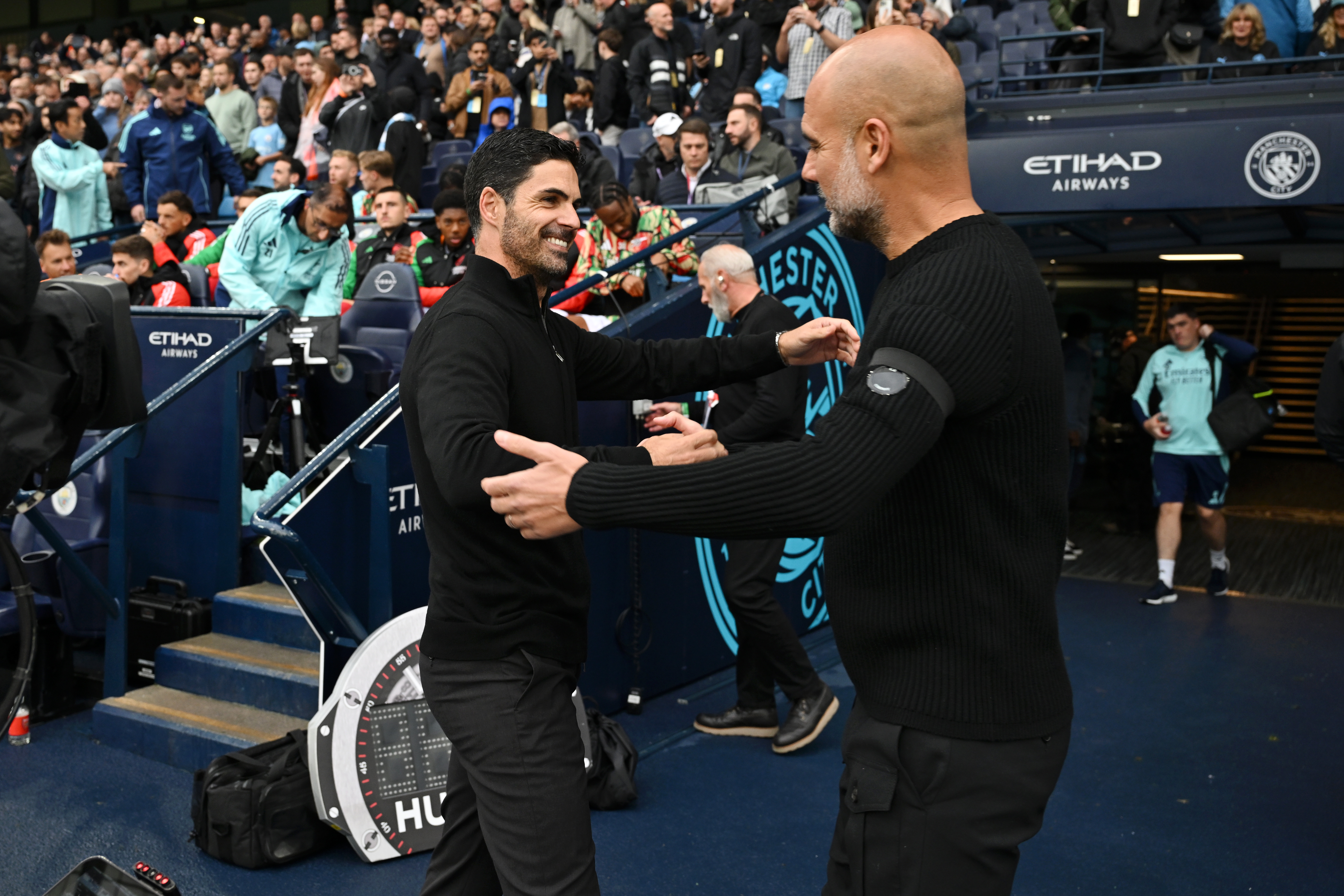Joints, smoking physios and dogs on the pitch: 15 unmissable pictures from 1967/68
When football went weird
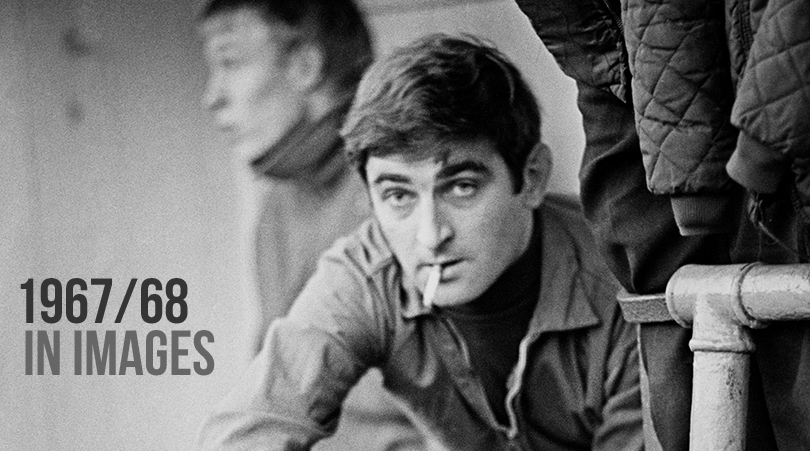
In 1965, when Peter Robinson started his 35-year career as a professional photographer, football and Britain were very different to the modern era – but the times they were a-changing.
Here we present a selection of Robinson’s evocative shots from the 1967/68 season. His images capture the shifting times, when players were finding fame but not enough fortune to give up second jobs, when physios smoked on the bench, when dogs ran free on the pitch, and when a West Ham player would happily offer you a joint.
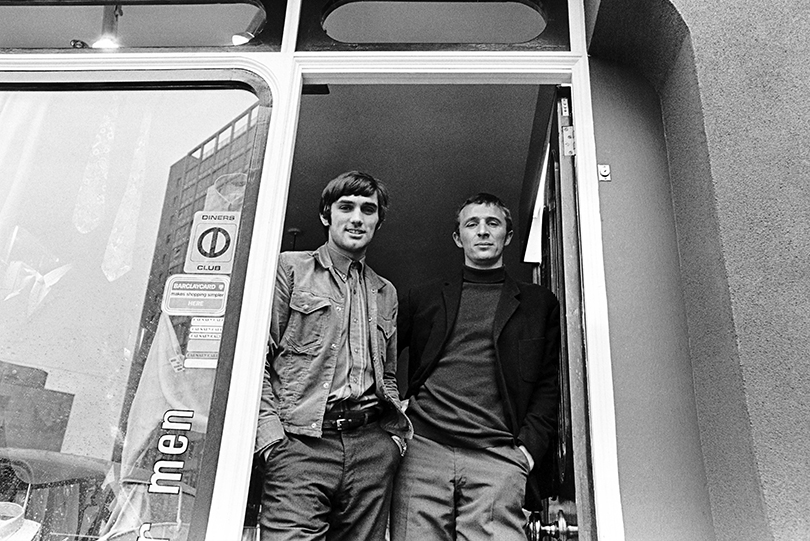
June 1967, and as The Beatles prepare to release Sgt Pepper’s Lonely Hearts Club Band, Manchester United’s George Best and Manchester City’s Mike Summerbee prepare to welcome ladies and gentlemen to their chaps’ costumiers Edwardia. Within a year, City would be champions of England, United champions of Europe.
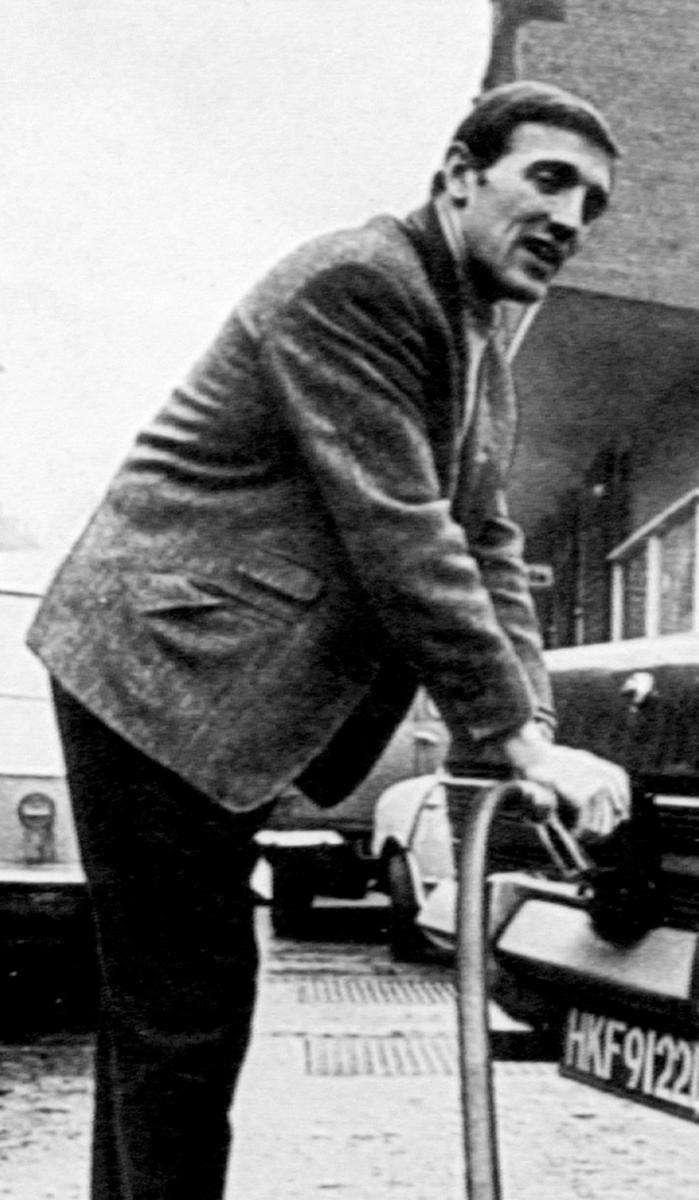
The Summer of Love wasn’t all retro stylishness. Here, snapper Peter Robinson catches Liverpool’s Peter Thompson filling up his car at a petrol station. The Carlisle-born left-winger had risen to prominence with Preston, who claimed to have turned down a bid from Juventus before selling him to Liverpool. Thompson duly received England recognition and was in the preliminary World Cup squads for both 1966 and 1970 without making the final 22; after all, Alf Ramsey’s side were the Wingless Wonders.
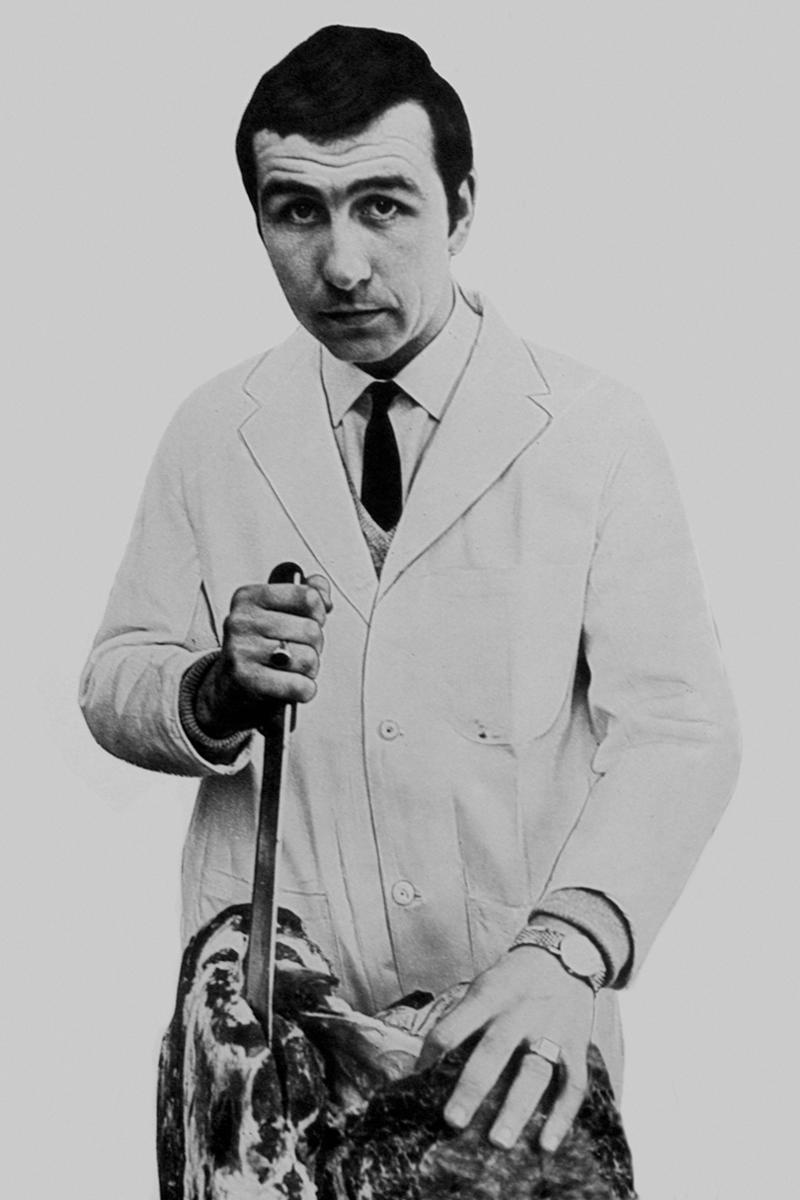
Anyone fancy a joint? Whatever the hippies were enjoying in September 1967, West Ham's Peter Brabrook had more earthbound ideas. A fully trained butcher, Brabrook was about to turn 30 and keeping his hand in at a longer-lasting trade than football. As it happened, the Greenwich-born winger ended up back with the Hammers Academy, developing nippers like Frank Lampard, Michael Carrick and Joe Cole, but he could still recommend you a nice spot of topside.
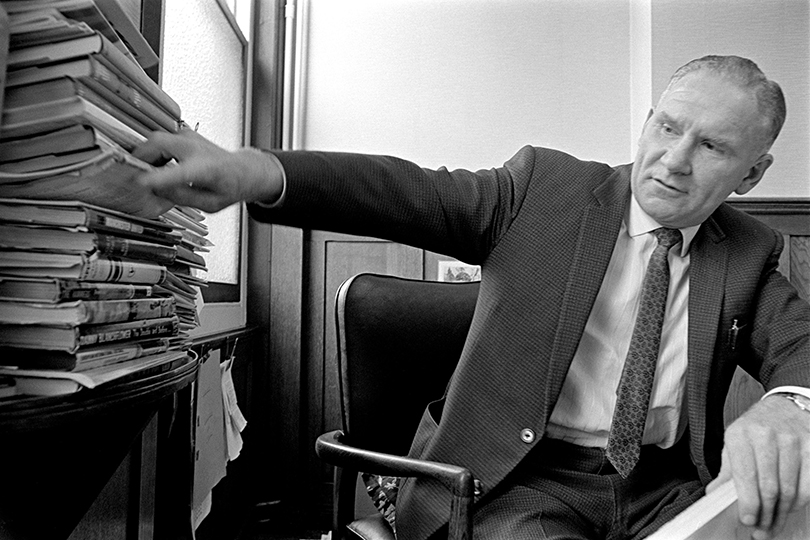
Somebody get this man a bookcase. Bill Nicholson might have been a brilliant organiser who led Tottenham to the Double in 1960/61, but in October 1967 his reading material was still a precarious pile – and it would be another 20 years before IKEA opened a store in the UK. But Bill Nick soldiered on, and his methods worked: Spurs had just finished third in the league and won the FA Cup.
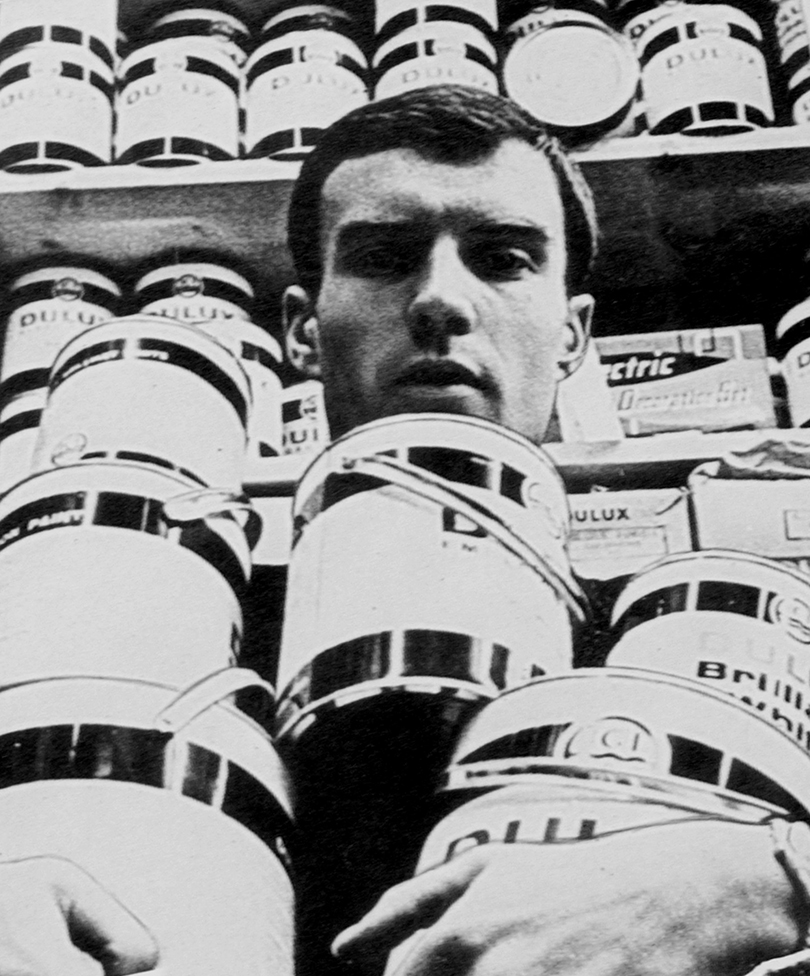
Although the maximum wage had been abolished, most footballers still had to prepare for a “proper” job after the career was over. And not just the auld fellas. Here we see Leeds United’s Paul Madeley, barely 23, piling paintpots at the DIY shop he ran with his brothers, sister-in-law and father. True, it was called the Paul Madeley Colour Centre, but there’s nothing wrong with trading on your name, especially in a one-club city. One-club man Madeley made more than 700 appearances for Leeds, playing in every outfield position as required.
Get FourFourTwo Newsletter
The best features, fun and footballing quizzes, straight to your inbox every week.
NEXT: Smoking physios, right-backs on typewriters and a dog on the pitch
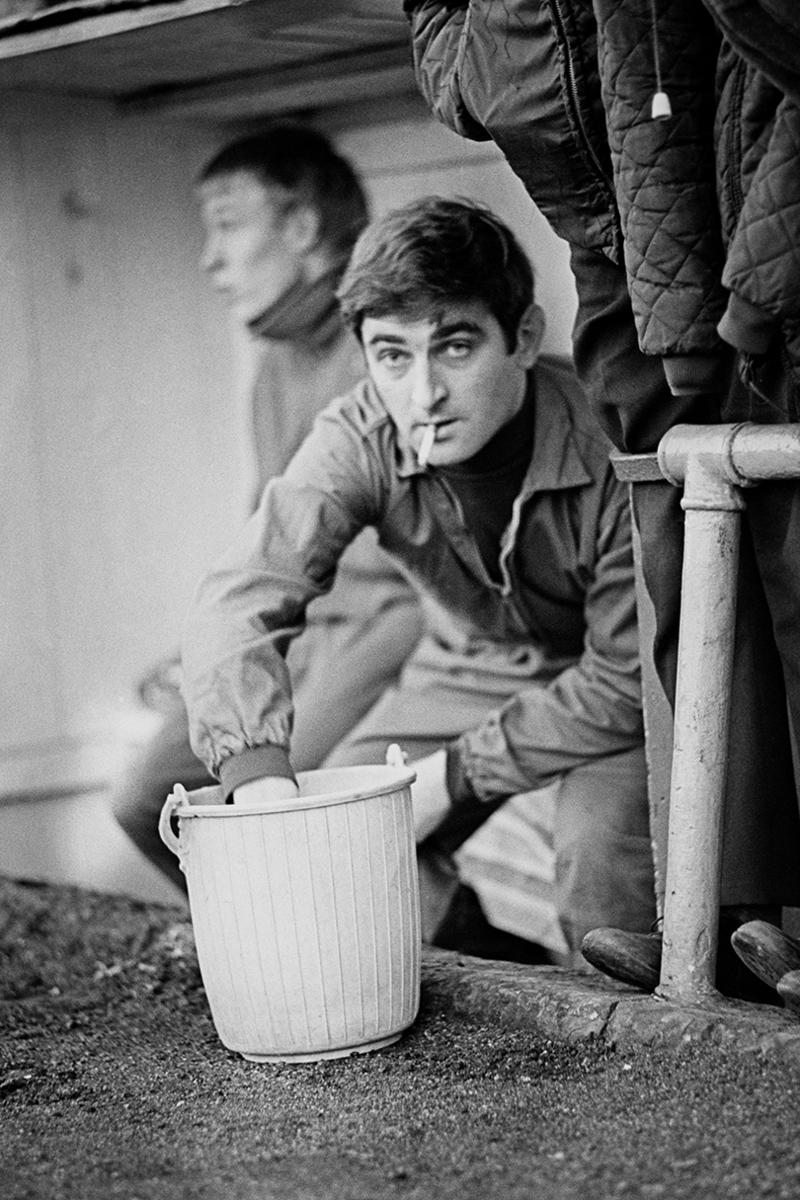
Health & Safety Gone Mad, etc: Oldham Athletic trainer Jim McGregor grabs for the magic sponge while casually smoking a cigarette. McGregor knew his stuff, though, perhaps saving Ian Wood’s life when the defender swallowed his tongue after collapsing following a clash of heads. In 1967/78 the Latics were in Division Three under progressive chairman Ken Bates, but they would be relegated in 1969 and Bates moved on, finding fame and infamy in the 1980s at Chelsea.
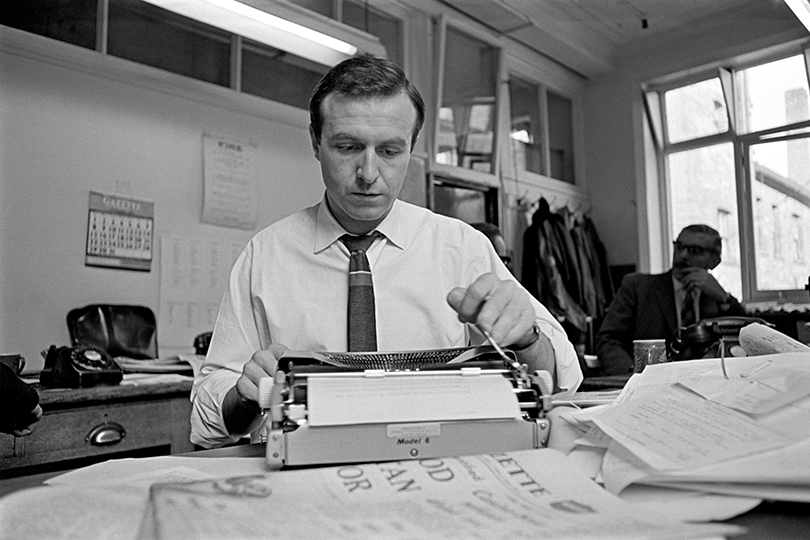
Jimmy Armfield writes his column for the Blackpool Gazette. The Mancunian right-back was 13 years into what would prove to be a 17-season stint with Blackpool, but he knew a World Cup winners’ medal wasn’t going to feed the family forever and set upon a media career that lasted several decades, latterly as a respected radio co-commentator. He also managed Bolton to the Third Division title before steadying the Leeds ship following Brian Clough’s 44-day stint, leading the Yorkshiremen to the 1975 European Cup Final.
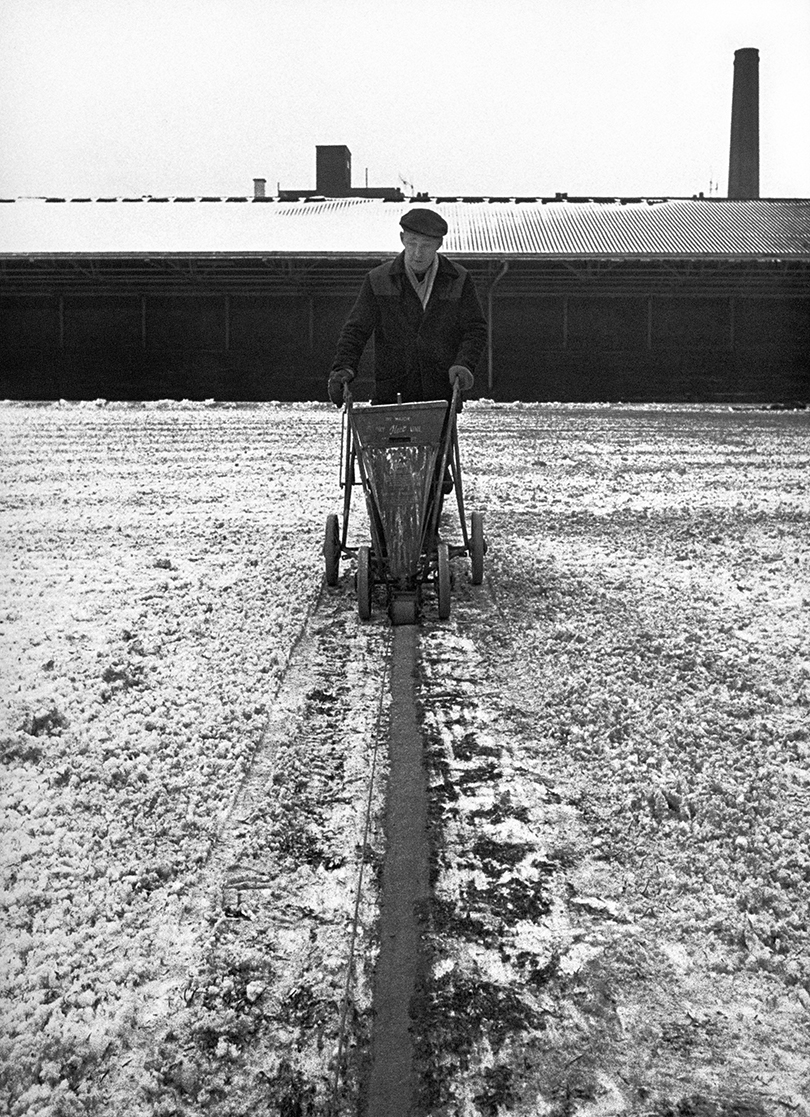
As December does its thing, football valiantly tries to struggle on. Here, the Leicester City groundsman doggedly marks out the pitch in the snow on the morning of Saturday 9 December, but the match was postponed. It wasn’t the only victim: Arsenal, who three years earlier had installed undersoil heating at Highbury, proudly ploughed on with a home game against Sheffield Wednesday until a further downfall of heavy snow in the second half forced the ref to abandon the match.
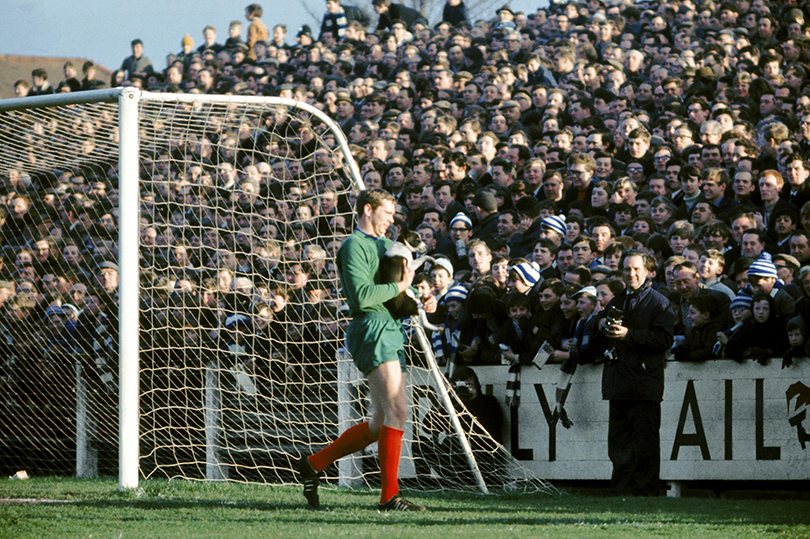
FA Cup Third Round day has always been special, and none more so than in the era of Ronnie Radford et al. On the same day Liverpool were being held by tiny Bournemouth & Boscombe Athletic and Carlisle were winning at Newcastle, third-division Tranmere were seeing off second-tier Huddersfield – despite a pitch invasion by a dog, duly dealt with by home goalkeeper Jim Cumbes. Rovers went on to beat Coventry and set up a Fifth Round trip across the Mersey to Everton, the valiant 2-0 defeat somewhat mitigated by their half of the gate receipts from a near-62,000 Goodison crowd. And three decades later, Tranmere fans Half Man Half Biscuit wrote a song called Even Men With Steel Hearts (Love To See A Dog On The Pitch).
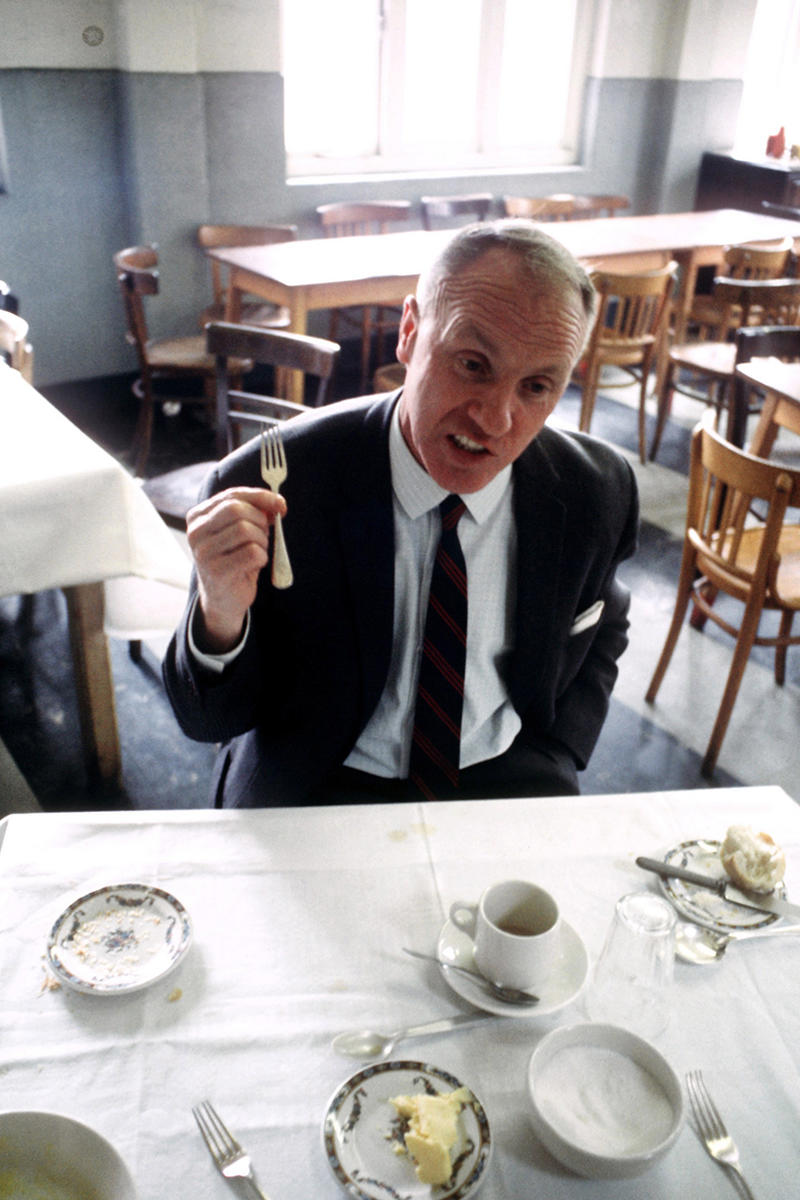
January 1968, and in the canteen at the Melwood training ground Bill Shankly makes a point with his fork, or a sign with his tines. Liverpool had won the league in 1964 and 1966 but finished fifth in 1967. By the end of January 1968 a 10-game unbeaten run took them into third, pushing Manchester United and Leeds; the run was ended in derby defeat at Goodison – particularly painful for the manager who said that if Everton were playing in his garden, he’d shut the curtains.
NEXT: Long throws, punch-ups - and can you name the FA Cup finalists?
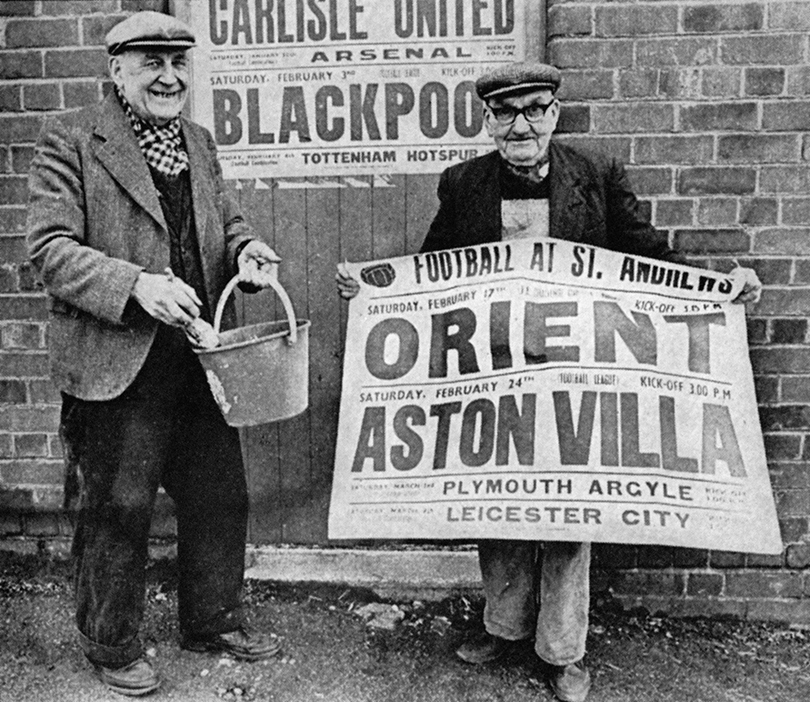
When social media was pasting up posters outside the ground: Birmingham City's George Moore and Tommy Bell break out the bucket and brush to advertise the forthcoming fixtures at St Andrew's. Under former Wolves legend Stan Cullis, Blues were half-heartedly pushing for promotion from the Second Division, but that wouldn’t come until 1972. In the meantime the faithful were cheered by wins over Third Division strugglers Orient (they dropped the "Leyton" bit between 1966 and 1987) in the FA Cup and local rivals Villa in the derby.
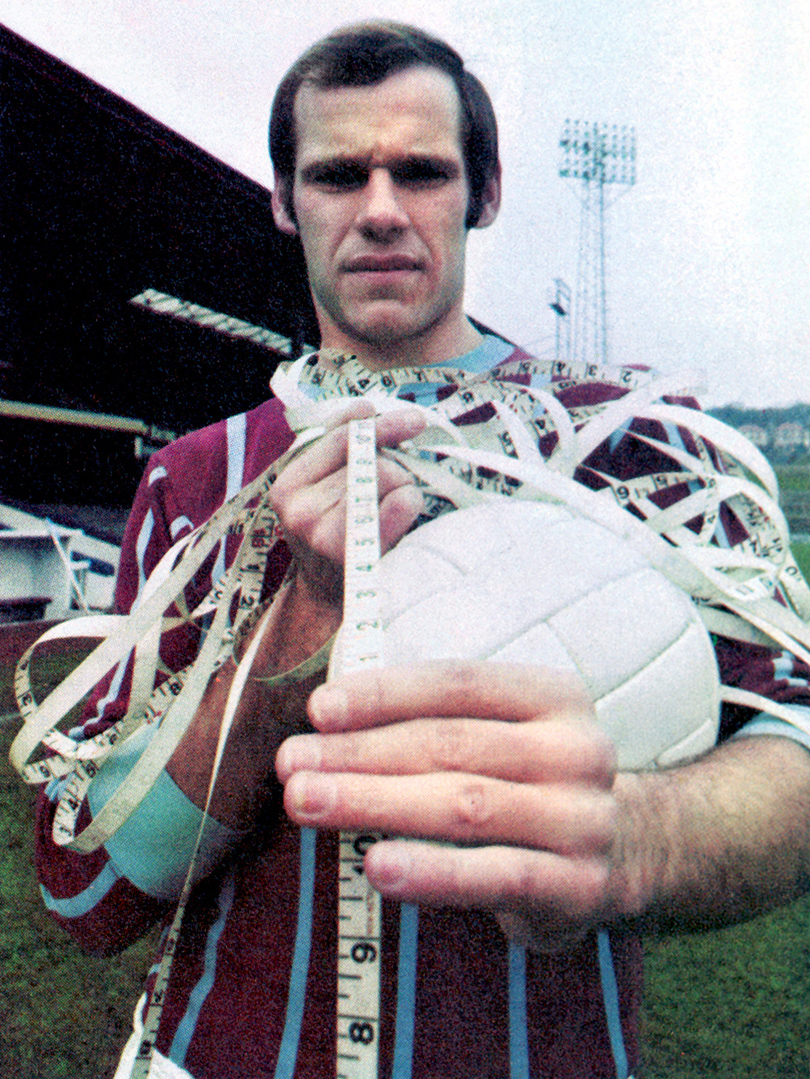
Crystal Palace's Bobby Woodruff with a tape measure to measure the distance of his much-feared long throw. Wiltshire lad Woodruff had broken through with local side Swindon before moving to Wolves and then Palace; he and his huge hurl helped the Glaziers (they didn’t become the Eagles until 1973) to promotion from the Second Division in 1968/69.
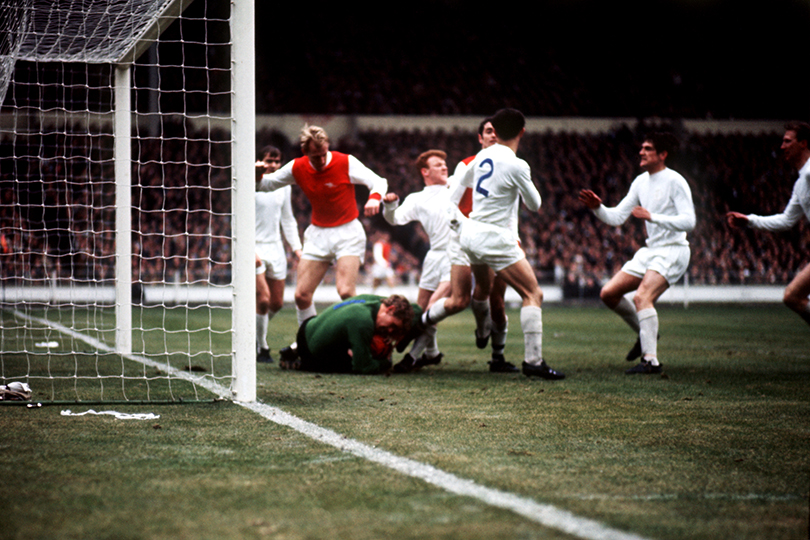
It’s the League Cup final, and tempers flare in the Wembley goalmouth as Arsenal's Ian Ure challenges Leeds goalkeeper Gary Sprake while Frank McLintock has an animated discussion with Billy Bremner, Paul Reaney, Norman Hunter and Jack Charlton. Decades before “1-0 to the Arsenal”, nobody could defend leads like Leeds – and Terry Cooper’s early long-ranger finally secured Don Revie’s first trophy, after three runners-up slots in the previous two seasons.
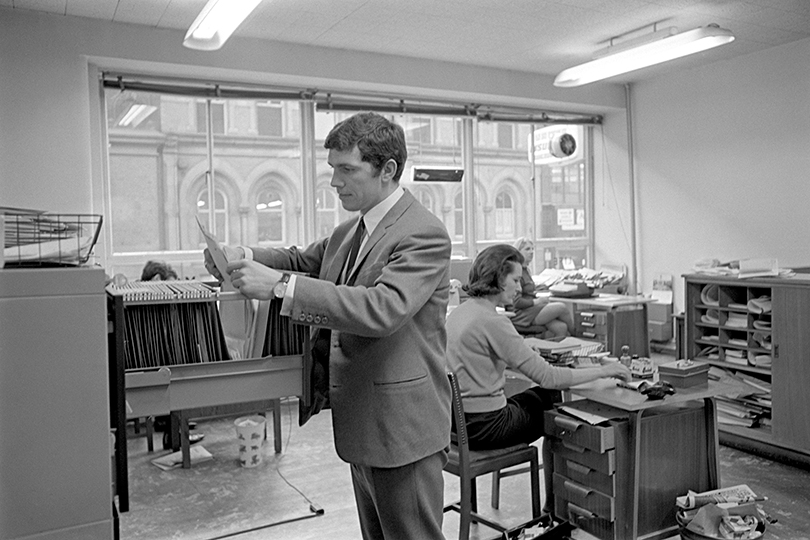
Fresh from Wembley glory, Leeds’ Johnny Giles checks the paperwork in the offices of United Insurance Brokers, the insurance company of which he was a partner. A more notable partnership may be the one he formed in central midfield with Billy Bremner: Don Revie’s side soon added the 1968 Fairs Cup, then another five trophies over the next six seasons. After a dissatisfied dabble with management, Giles would go on to a 30-year career in the football media.
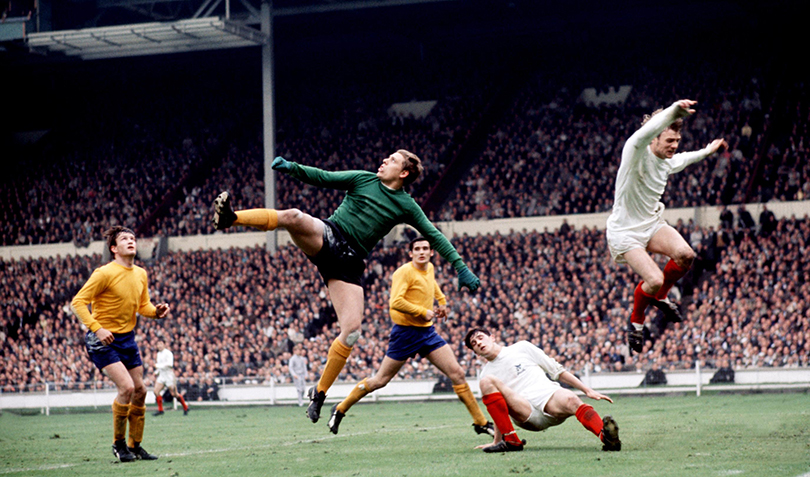
Spot the ball… and guess the teams. The 1968 Cup final was the first to be televised live in colour, so obviously both teams wore their away strips – Everton switching to a curious orange and West Brom to a plain white. The Baggies won through Jeff Astle’s extra-time goal – meaning he scored in every round. Here, staging what looks more like performance art, are Everton’s Tommy Wright, Gordon West and John Hurst, plus West Brom’s Graham Lovett and Clive Clark.
Gary Parkinson is a freelance writer, editor, trainer, muso, singer, actor and coach. He spent 14 years at FourFourTwo as the Global Digital Editor and continues to regularly contribute to the magazine and website, including major features on Euro 96, Subbuteo, Robert Maxwell and the inside story of Liverpool's 1990 title win. He is also a Bolton Wanderers fan.
